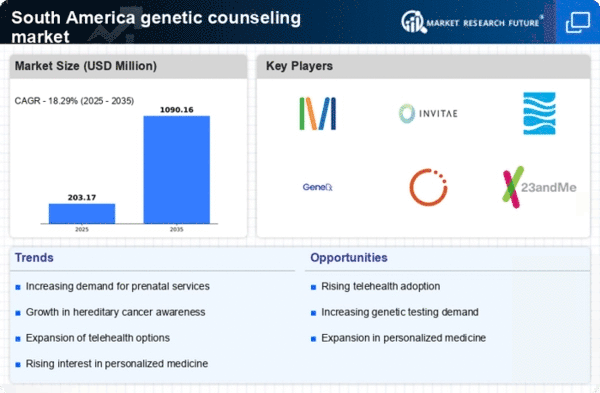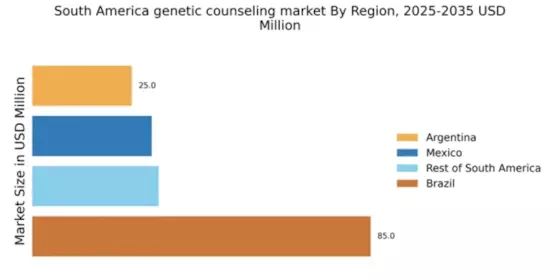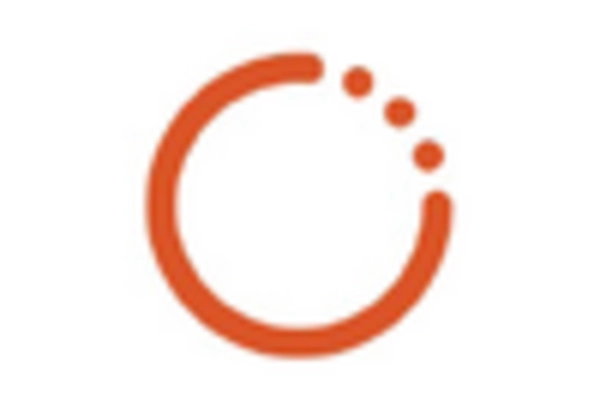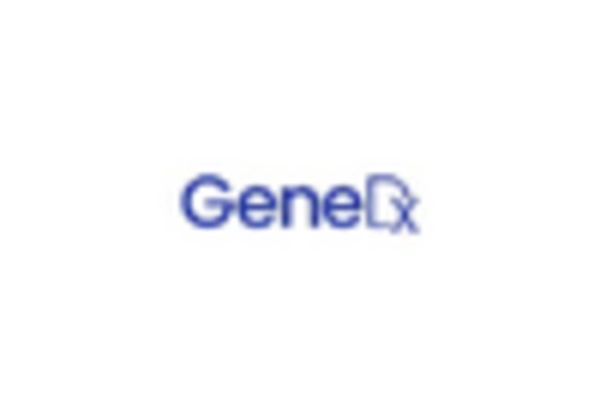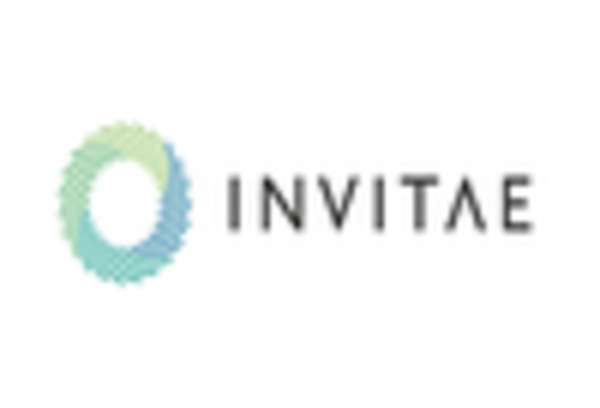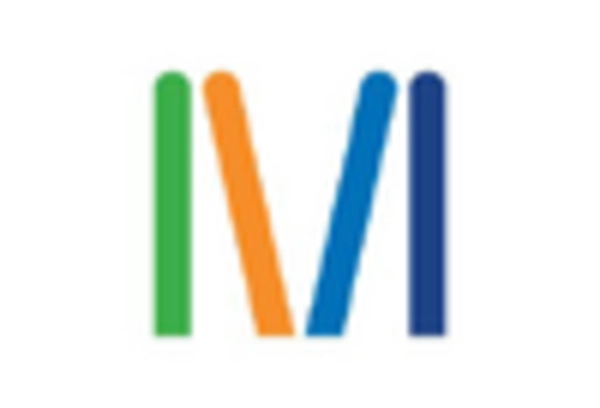Advancements in Genetic Research
Innovations in genetic research are significantly influencing the genetic counseling market industry in South America. Breakthroughs in genomics and biotechnology have led to more accurate and comprehensive genetic testing options. These advancements enable genetic counselors to provide more precise risk assessments and personalized recommendations for patients. The market for genetic testing in South America is projected to reach approximately $1 billion by 2027, reflecting the growing reliance on genetic information in healthcare. As research continues to evolve, the demand for genetic counseling services is likely to increase, as individuals seek to understand the implications of their genetic makeup. This trend underscores the importance of integrating cutting-edge research into counseling practices, ensuring that patients receive the most relevant and up-to-date information regarding their genetic health.
Government Initiatives and Policies
Government initiatives aimed at improving healthcare access and genetic services are playing a crucial role in shaping the genetic counseling market industry in South America. Various countries in the region are implementing policies to promote genetic testing and counseling as part of their public health strategies. For instance, funding for genetic research and the establishment of national screening programs are becoming more common. These initiatives not only enhance public awareness but also facilitate access to genetic counseling services for underserved populations. As governments recognize the importance of genetic health, the market is likely to experience growth driven by increased funding and support for genetic counseling programs. This proactive approach may lead to a more informed public, ultimately driving demand for genetic counseling services across the region.
Rising Prevalence of Genetic Disorders
The increasing incidence of genetic disorders in South America is a primary driver for the genetic counseling market industry. Conditions such as cystic fibrosis, sickle cell anemia, and various hereditary cancers are becoming more prevalent, necessitating professional guidance for affected families. According to health statistics, approximately 1 in 300 individuals in South America may be affected by a genetic disorder, highlighting the urgent need for genetic counseling services. This trend is likely to propel the demand for genetic counselors, as families seek to understand their risks and options. Furthermore, the growing awareness of genetic testing's role in early diagnosis and management of these conditions is expected to enhance the market's growth. As healthcare systems adapt to these challenges, the genetic counseling market industry is poised for expansion, driven by the need for specialized knowledge and support.
Cultural Shifts Towards Preventive Healthcare
There is a noticeable cultural shift in South America towards preventive healthcare, which is significantly impacting the genetic counseling market industry. As individuals become more health-conscious, there is a growing recognition of the importance of genetic information in disease prevention and management. This shift is reflected in the increasing number of people seeking genetic counseling services to understand their hereditary risks and make informed health decisions. Surveys indicate that nearly 60% of individuals in urban areas are now more inclined to pursue genetic testing as part of their healthcare routine. This trend suggests a potential increase in the demand for genetic counselors who can provide guidance and support in navigating genetic risks. As preventive healthcare continues to gain traction, the genetic counseling market industry is likely to benefit from this evolving mindset.
Integration of Genetic Counseling in Clinical Practice
The integration of genetic counseling into various clinical practices is emerging as a significant driver for the genetic counseling market industry in South America. Healthcare providers are increasingly recognizing the value of genetic counselors in enhancing patient care, particularly in oncology, pediatrics, and reproductive health. This integration allows for a more comprehensive approach to patient management, where genetic counselors work alongside physicians to provide tailored advice based on genetic information. As a result, the demand for genetic counseling services is expected to rise, with estimates suggesting a growth rate of around 15% annually in the coming years. This collaborative model not only improves patient outcomes but also emphasizes the necessity of genetic counseling in modern healthcare, thereby fostering further growth in the market.


